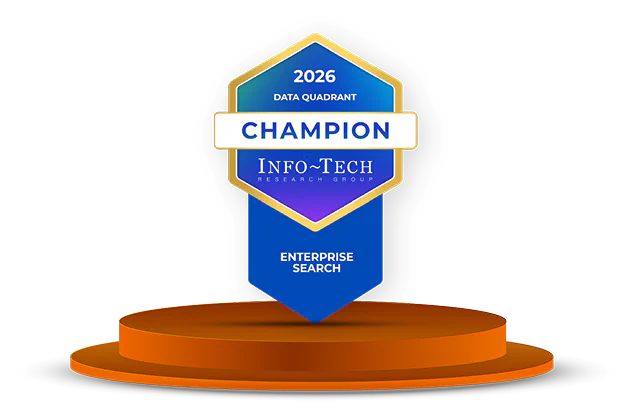If the chaos behind the front desk at The White Lotus tells us anything, it’s that customer service isn’t always as seamless as it looks. High expectations, unpredictable scenarios, and limited staff capacity make delivering a consistent experience feel like orchestrating a multi-episode drama. But unlike luxury resort staff left to improvise, today’s customer service teams have an edge: intelligent, prebuilt AI agents.
These out-of-the-box virtual assistants are designed to hit the ground running, offering contextual support, automating repetitive queries, and enhancing agent performance in real time. Solutions like SearchUnify’s Agent Helper bring this vision to life by embedding AI-driven insights directly into the agent workflow – no custom builds, no months-long implementation cycles.
What Are Prebuilt AI Agents—and Why Do They Matter?
Unlike custom-built bots that require extensive training data and developer hours, prebuilt AI agents are domain-ready. They come with pre-configured workflows tailored for customer support use cases: triaging tickets, surfacing knowledge, suggesting next best actions, and more. They’re designed to reduce time-to-value and ease the AI adoption curve.
Tools like Agent Helper go a step further by integrating with CRMs, knowledge bases, and ticketing platforms—delivering relevant information and recommendations within the agent’s workspace. That’s why it was recently featured among the top 5 agent assist solutions in 2025 for its ability to drive real-time decision support with minimal friction.
Common Use Cases Where Prebuilt Agents Shine
While the term “AI agent” often evokes chatbots, prebuilt AI agents have far broader applications within the support landscape. Some of the most high-impact use cases include:
- Ticket categorization and routing: Automating the classification of incoming issues and routing them to the right queue.
- Knowledge surfacing: Offering relevant KB articles and documentation during live interactions.
- Agent assist: Delivering real-time suggestions and next-best actions based on customer context.
- Response automation: Pre-filling replies or handling repetitive questions autonomously.
- Case summarization: Generating intelligent wrap-ups for faster ticket closure and auditing.
The value here isn’t just speed—it’s consistency and accuracy. When agents are supported by AI that understands the customer’s issue and recommends a relevant course of action, both the experience and the outcome improve.
Ready to explore how AI can elevate your support team?
Talk to UsThis shift reflects a growing emphasis on data-driven agent enablement. As explored in our article on why analytics is your secret weapon, data-informed support isn’t just about dashboards—it’s about giving agents the right insights, at the right time, through the right tools.
How Do These AI Agents Actually Work?
Prebuilt AI agents blend natural language processing (NLP), machine learning, and knowledge integrations to deliver contextual support. The underlying architecture often includes:
- A cognitive layer that interprets customer intent
- A content unification engine that pulls data from various sources (tickets, KBs, community forums, etc.)
- Decision logic that determines what the agent should recommend or do next
Agent Helper, for example, is built on a platform that unifies enterprise content and enriches it with AI models trained on customer service language. It then delivers smart, contextual suggestions as agents work—without them needing to leave their screen.
For teams interested in the technical architecture behind such tools, this breakdown of AI frameworks in customer support explores how model context protocols (MCPs), intent matching, and reasoning layers power modern AI agents.
Where Prebuilt Agents Outperform Traditional Bots
Many companies have dabbled with chatbots only to discover they plateau quickly. Prebuilt AI agents offer a more sustainable path forward by:
- Working alongside human agents, not instead of them
- Delivering context-aware recommendations, not just scripted flows
- Leveraging historical data to improve over time, rather than degrading with edge cases
The result is improved first contact resolution, faster handle times, and more empowered agents. And it’s not just theory—organizations that have adopted tools like Agent Helper are actively bridging the gap between agent experience and customer satisfaction.
That’s a big reason why ignoring contact center analytics is no longer viable. Without visibility into how your AI agents are performing—or where they’re falling short—it’s impossible to optimize at scale.
Flexibility Without Complexity
A common misconception is that prebuilt equals rigid. But that’s far from true with enterprise-grade solutions. With Agent Helper, for example, admins can customize everything from intent mappings and escalation triggers to knowledge prioritization and supported languages.
That adaptability matters—especially when you’re comparing tools. In our comparison of Agent Helper and SupportLogic, we found that out-of-the-box capabilities are just the start. True value comes from how easily an AI agent molds to your unique support ecosystem.
Of course, flexibility also requires trust. If your agents don’t trust what the AI is surfacing, they won’t use it. That’s why transparency and explainability must be built in from the start. Our article on building trust with AI explores how organizations can align AI outputs with business logic and agent expectations.
Final Thoughts: Should You Invest in Prebuilt AI Agents?
Here’s a quick litmus test. If your support team is:
- Handling high ticket volumes manually
- Struggling with inconsistent service quality
- Onboarding new agents who take months to ramp
- Looking to unlock insights buried in tickets and KBs
…then a prebuilt AI agent might be exactly what you need. It’s not just about automation—it’s about augmented intelligence that amplifies the performance of your team, without draining your resources.
In a world where service expectations keep climbing, prebuilt AI agents like SearchUnify’s Agent Helper offer a strategic, scalable, and fast-track way to evolve.






 Last Updated: September 19, 2025
Last Updated: September 19, 2025


